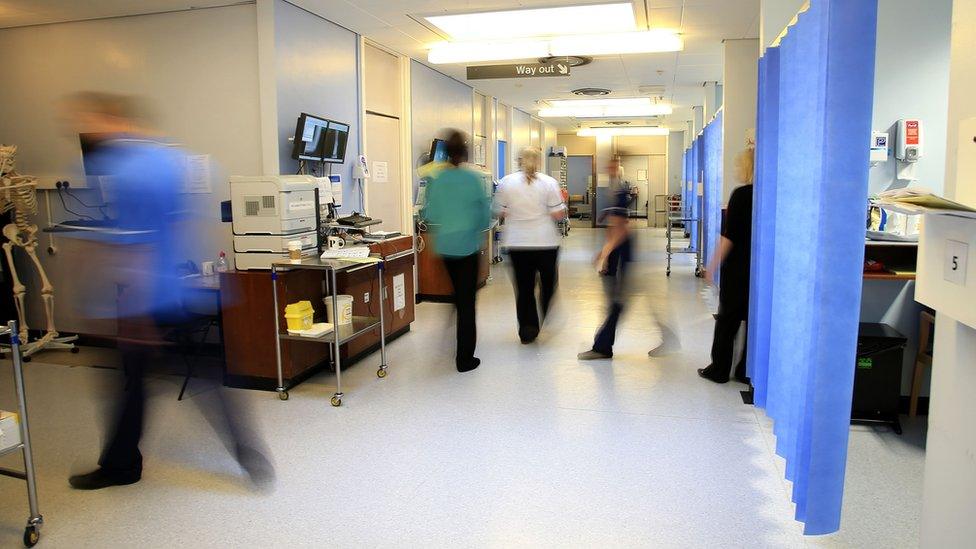Many serious surgeries cancelled on the day, study finds
- Published
- comments

A significant number of patients requiring serious surgery are having operations postponed, a study suggests.
Research led by the Royal College of Anaesthetists and University College London looked at more than 26,000 cases in a seven-day period in March last year, across 245 UK hospitals.
They found one in seven operations were cancelled on the day of surgery.
However, researchers acknowledged it was likely this figure would be lower during quieter periods of the year.
Nonetheless, they said the problem needed addressing as it put the health and welfare of patients at risk.
The study, published in the British Journal of Anaesthesia, external, looked at both emergency and planned operations that required a stay in hospital.
This would include everything from heart operations and cancer surgery to complex abdominal cases and joint replacements.
Researchers also looked at how many people previously had operations cancelled.
This was done for those just undergoing planned surgery - not the cases that arrived via A&E.
They found that 10% of the 15,000 people requiring a planned operation had experienced having it postponed previously.
Around a third of cancellations were for clinical reasons, such as the person not being healthy enough to undergo the treatment.
Other reasons cited included a lack of beds, theatres, equipment and staff.
For half of patients, no reason was given.
'Complete waste of resources'
Chief investigator Prof Ramani Moonesinghe said it was clear last-minute cancellations were affecting the "health and welfare of tens of thousands of patients every year".
"This is not good for patients. We need to find different solutions," she said.
She added this could include doing more to separate emergency and elective treatments, so A&E pressures did not hamper the ability of hospitals to treat patients coming in for planned surgery.
More should also be done to do planned treatments in the quieter summer months, she said.
Prof Cliff Shearman, of the Royal College of Surgeons, said: "It is important to underline that cancelling and rescheduling an operation is not only stressful for patients, but a complete waste of hospital resources.
"It is awful for a patient to have their operation cancelled twice."
NHS bosses said that looking at the overall number of operations done, including minor treatments and day cases, the cancellation rate was significantly lower.
Official figures show currently around 1% of all planned operations are cancelled for non-clinical reasons in England.
An NHS England spokesperson said: "This report provides only a selective, limited snapshot of surgery in England, where the NHS is funding more routine operations and more people are undergoing treatment than the year before."
Meanwhile, a spokesperson for the Welsh government said: "It is important to note that not all postponements result in the theatre slot being lost, as more often than not, health boards will have other patients on an agreed stand-by list who can be treated at that time."
- Published8 March 2018

- Published3 January 2018

- Published4 January 2018
